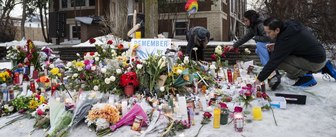According to data released last week, the quarter between April 1 and June 30 was the second consecutive one in which U.S. GDP declined; two consecutive quarters of decline is considered by some economists to be the “textbook definition” of a recession. Despite that, some economists say that the strong job market is a sign that the U.S. economy is doing well, and the Federal Reserve has said that the U.S. is not in a recession.
According to the latest Economist/YouGov poll, the share of Americans seeing the U.S. as being in a recession is up slightly to 61%, from 57% at the beginning of July. Despite the small change over a few weeks, what has remained constant is that a majority of Americans perceive that the country is in an economic recession. Asked in an open-ended question why they believe the U.S. is in a recession, many people cite the two consecutive quarters of negative growth. Others talk about rising prices and challenges in buying basic items.
Among the 18% of Americans who say the U.S. is not currently in a recession, most (55% of the group) say it is very or somewhat likely that there will be an economic recession during the next 12 months. Among Americans overall, just 4% say both that the U.S. is not currently in a recession and that a recession is not very likely or not at all likely to happen in the next year.
A possible reason for the perceptions and concerns about a recession: Most Americans (56%) say they have felt the impact of inflation “a lot” in their own lives. People with a family income of less than $50,000 are more likely to have felt the impact of inflation (61%) than are people with an income between $50,000 and $100,000 (56%) or more than $100,000 (49%). In order to save money, 72% of Americans say that this year they have put off buying at least one of the following: clothing or personal items (48% say this), going on a vacation or taking time off (46%), doing home repairs or maintenance (34%), doing car repairs or maintenance (25%), and/or receiving medical care (22%).
Majorities of Americans have had at least a “somewhat difficult” time paying for gas (65%), food (58%), and housing (53%), with nearly as many affected by car payments (47%); 77% have had difficulty paying for at least one of these. While gas is difficult to afford for nearly two-thirds of the public, affording gas is challenging for especially large shares of people with a family income under $50,000 annually (73%) and people living in a rural community (74%).
Americans’ concerns with prices continue to dominate the top issues of the week: 18% of people name “inflation/prices” as their “most important issue” right now, with “jobs and the economy” (12%) and “health care” (also 12%) in the second and third spots, respectively. Inflation has topped the list of most important issues since its introduction as an option two weeks ago, but the share who name it as their most important issue has fallen from 24% in its debut and 22% last week.
Nearly half of Americans (48%) say their own family’s economic situation is worse than it was a year ago. About three in five Americans this week (61%) view the economy as “getting worse,” a viewpoint that a majority of Americans have held in recent months. This week’s share is down slightly from an Economist/YouGov poll from late June (when 66% said the economy was getting worse).
— Carl Bialik and Taylor Orth contributed to this article.
This poll was conducted on July 30 - August 2, 2022 among 1,500 U.S. adult citizens. Explore more on the methodology and data for this Economist/YouGov poll.
Image: Adobe Stock by SERSOLL









